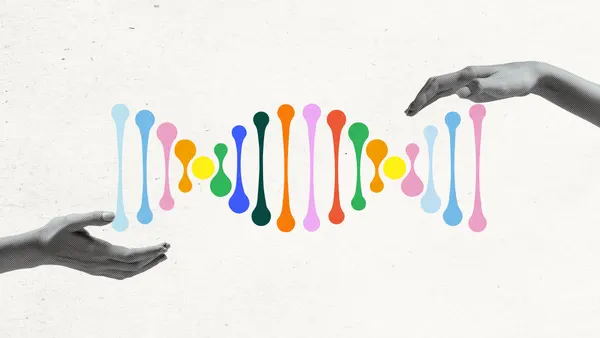The Financial Burden of Care
Navigating healthcare is challenging for most individuals and families, but for those facing rare or chronic conditions, the obstacles can feel even more overwhelming. Patients with serious health conditions often encounter delayed diagnoses, limited treatment options, restricted access to specialist care, and scarce local resources. On top of these challenges, they face the heavy financial burden of managing a complex condition.
“The financial impact of healthcare is staggering for individuals with rare conditions,” said Tiara Green, president of Accessia Health. “Affording health insurance is just the beginning; the cost of medical care is immense. Individuals must afford their copayments, coinsurance, and additional expenses such as travel, lodging, and durable medical equipment. Those with rare conditions need a truly holistic support system that addresses the full spectrum of their healthcare needs.”
According to recent data, Americans collectively hold $220 billion in medical debt, with nearly three million people owing over $10,000 each. For individuals with rare and chronic health conditions, this debt is likely to grow as they struggle to afford essential care. Charitable Patient Assistance Programs (PAPs) play a critical role in helping patients afford their medical costs.
“Patient assistance programs have been around for decades, however as we better understand the needs of patients, the way in which assistance is provided must evolve so that organizations are providing comprehensive services to individuals,” said Green.
Going Beyond Copays
Traditional patient assistance programs primarily focus on helping with medication costs, increasing access to essential therapies and medicines. However, this support often falls short of addressing the full range of financial challenges individuals face, such as travel, durable medical equipment, and other non-medical expenses. At Accessia Health, we bridge this gap with a holistic approach that extends beyond copays. In addition to easing financial burdens, we offer advocacy, education, and legal support—resources designed to help patients stay on their treatment plans and achieve better health outcomes.
“We recognize that patients with rare diseases often have complex needs that go unmet by traditional assistance,” said Green. “That’s why we go beyond copay support to cover a wide range of expenses—from medical devices to lodging, testing, and essential equipment—ensuring that those we serve receive the comprehensive care they need.”
For example, a patient with cystic fibrosis may need specialized support and respiratory therapy equipment, while a patient with hemophilia requires regular infusions and physical therapy. Flexibility in funding is key for those being served. Our improved assistance model called, Your Assistance, Your Choice, empowers patients to use their financial assistance on the healthcare expenses most critical to their healthcare journey. This type of flexibility allows individuals to allocate funds based on their own needs, reducing their financial burden, and improving their overall quality of life.
Real Stories, Real Impact
Consider Amy, who is living with Hereditary Angioedema, a rare condition in which every few months, her tongue and throat swelled so severely that she required a ventilator in the hospital. Through the help of financial assistance from Accessia Health, Amy was able to better afford her medication, treatment, and travel expenses to see specialists. Today, her quality of life has improved, and her hospitalizations have been less frequent.
Patients like Amy, who are enrolled in comprehensive patient assistance programs, not only experience better health outcomes but also report higher satisfaction with their care because the financial barriers no longer stand in the way of essential treatments.
A Holistic Approach to Patient Assistance
And while financial assistance can be life-changing, many still face unmet needs. This is why Accessia Health also offers education and case management, empowering individuals to understand their condition, make informed decision about their health, and navigate the healthcare system effectively. In addition, our free legal aid program, A.C.C.E.S.S®, helps individuals with disability legal aid, Social Security Disability Insurance (SSDI), and Supplemental Security Income (SSI) claims.
Through holistic support and personalized care, Accessia Health helps people of all ages, who are living with a rare or chronic condition, access the life-saving resources they need. To learn more about how we can support you or your loved ones, visit AccessiaHealth.org today.








